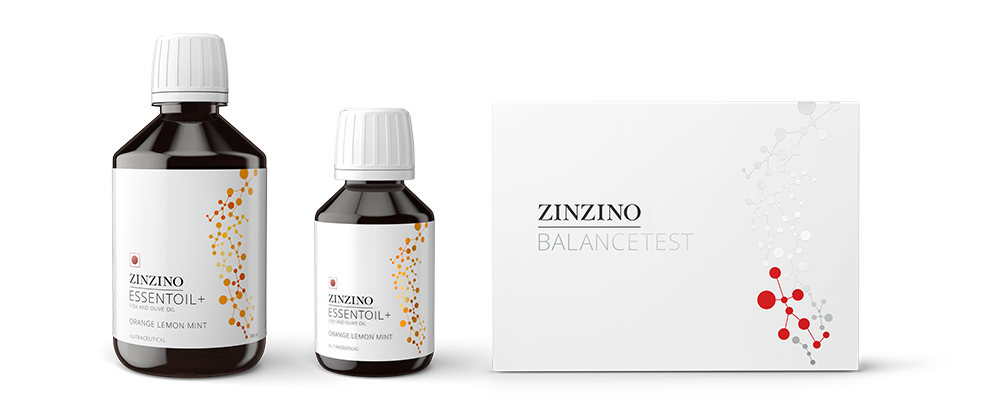Change test ID

Change test ID

Change test ID

Let’s start!

Your result is:
We got more information to show you...

Are you sure?


What country are you from?

 Back
Back

Please, enter your age, weight & height
 Back
Back

Please, select your gender
 Back
Back

Are you currently pregnant or exclusively breastfeeding?
 Back
Back

What month of pregnancy are you in?
 Back
Back

Have you consumed any Omega-3 supplements before?
 Back
Back

Which option best describes your diet?
(I eat everything)
(I don’t eat meat)
(I only eat fish and seafood)
(I don’t eat any animal products)
 Back
Back

Join Our Groundbreaking Test-Based Nutrition Study!
Important Information:
Screening Process: You'll begin by answering 6 brief questions to determine your suitability.
Suitability Notice: Only those who meet our specific study criteria will receive further details via email.
If Selected: You will be contacted with instructions and, as a thank you for your participation, you will receive a complimentary HbA1c test along with an additional test kit for the research and a questionnaire containing 15 more questions via post. Please follow the provided instructions carefully and return both the completed test kit and questionnaire as directed.
Confidentiality: All information you provide and any data we collect will be handled in a strictly confidential manner. Your data will be de-identified so that your test results cannot be linked to your personal information and will be used solely for research purposes.
Voluntary Withdrawal: You may withdraw from the study at any time by sending an email to research@zinzino.com.
Would you like to contribute to shaping the future of test-based nutrition?
 Back
Back

Thank you for your interest and for playing a vital role in advancing nutrition research!
Have you been taking Xtend or Xtend+, according to the recommended dose (at least 2 tablets per day), for at least the past 2 weeks?
 Back
Back

Have you been taking Zinobiotic+ according to the recommended dosage (2 scoops per day) for at least the past 2 weeks?
 Back
Back

How would you describe your BalanceOil+ consumption over the past 120 days?
 Back
Back

Over the next 30 days, do you plan to maintain the same consumption pattern for your Zinzino Health Protocol products as you reported above? (For example, if you currently do not use a product, select 'Yes' if you plan to continue not using it.)"
 Back
Back

Have you taken antibiotics in the past month?
 Back
Back

Have you taken laxatives in the past month?
 Back
Back

Please provide your email and address below so we can contact you and send out test-kits if you are selected for the study.
 Back
Back

We protect your privacy
What kind of Omega-3 supplement?
 Back
Back

Let’s start!

 Not at all! If you don’t want to answer the questions prior to getting your Omega-6:3 Balance result, you can choose to skip this step.
Not at all! If you don’t want to answer the questions prior to getting your Omega-6:3 Balance result, you can choose to skip this step.
Are you sure?



What country are you from?
 Back
Back

Please, enter your age, weight & height
 Back
Back

Please, select your gender
 Back
Back

Are you currently pregnant or exclusively breastfeeding?
 Back
Back

What month of pregnancy are you in?
 Back
Back

Have you consumed any Omega-3 supplements before?
 Back
Back

Which option best describes your diet?
(I eat everything)
(I don’t eat meat)
(I only eat fish and seafood)
(I don’t eat any animal products)
 Back
Back

Join Our Groundbreaking Test-Based Nutrition Study!
Important Information:
Screening Process: You'll begin by answering 6 brief questions to determine your suitability.
Suitability Notice: Only those who meet our specific study criteria will receive further details via email.
If Selected: You will be contacted with instructions and, as a thank you for your participation, you will receive a complimentary HbA1c test along with an additional test kit for the research and a questionnaire containing 15 more questions via post. Please follow the provided instructions carefully and return both the completed test kit and questionnaire as directed.
Confidentiality: All information you provide and any data we collect will be handled in a strictly confidential manner. Your data will be de-identified so that your test results cannot be linked to your personal information and will be used solely for research purposes.
Voluntary Withdrawal: You may withdraw from the study at any time by sending an email to research@zinzino.com.
Would you like to contribute to shaping the future of test-based nutrition?
 Back
Back

Thank you for your interest and for playing a vital role in advancing nutrition research!
Have you been taking Xtend or Xtend+, according to the recommended dose (at least 2 tablets per day), for at least the past 2 weeks?
 Back
Back

Have you been taking Zinobiotic+ according to the recommended dosage (2 scoops per day) for at least the past 2 weeks?
 Back
Back

How would you describe your BalanceOil+ consumption over the past 120 days?
 Back
Back

Over the next 30 days, do you plan to maintain the same consumption pattern for your Zinzino Health Protocol products as you reported above? (For example, if you currently do not use a product, select 'Yes' if you plan to continue not using it.)"
 Back
Back

Have you taken antibiotics in the past month?
 Back
Back

Have you taken laxatives in the past month?
 Back
Back

Please provide your email and address below so we can contact you and send out test-kits if you are selected for the study.
 Back
Back

Do you want a notification when your test is ready?
 Back
Back

We protect your privacy
Activate notifications
 Back
Back

What kind of Omega-3 supplement?
 Back
Back

Your test results are not yet ready
Thank you for your answers!

We are terribly sorry!
Your form is already sent.
Do you have more questions please contact customer support
Customer support
Your sample contained too little blood
Your sample was missing in the envelope
Let’s start!

 Not at all! If you don’t want to answer the questions prior to getting your status of vitamin D, you can choose to skip this step.
Not at all! If you don’t want to answer the questions prior to getting your status of vitamin D, you can choose to skip this step.
Are you sure?


What country are you from?
 Back
Back

Please, enter your age, weight & height
 Back
Back

Please, select your gender
 Back
Back

Have you consumed any supplements containing vitamin D recently?
 Back
Back

Which option best describes your diet?
(I eat everything)
(I don’t eat meat)
(I only eat fish and seafood)
(I don’t eat any animal products)
 Back
Back

Have you taken any Zinzino Vitamin D Test before?
 Back
Back

We want your help
 Back
Back

Do you want a notification when your test is ready?
 Back
Back

Please, enter your previous Vitamin D Test ID
 Back
Back

Enter if you made any CHANGES in daily dosage since your previous test?
Fill in your increase or decrease of Vitamin D supplements
 Back
Back

How often did you take the supplements?
ZinoShine+
days per week
Xtend/Xtend+
days per week
BalanceOil+/Vegan/AquaX
days per week
Protect+
days per week
Essent (softgels)
days per week
Another supplier
days per week
 Back
Back

We protect your privacy
Activate notifications


 Back
Back

Select products
| ZinoShine+ |
0
|
/times per week |
| Xtend/Xtend+ |
0
|
/times per week |
| BalanceOil+/Vegan/AquaX |
0
|
/times per week |
| Protect+ |
0
|
/times per week |
| Essent+ (softgels) |
0
|
/times per week |
| From another supplier - /times per week |
0
|
/times per week |
 Back
Back

Your result is:
We got more information to show you...

Your test results are not yet ready
Thank you for your answers!
Let’s start!

 Not at all! If you don’t want to answer the questions prior to getting your status of vitamin D, you can choose to skip this step.
Not at all! If you don’t want to answer the questions prior to getting your status of vitamin D, you can choose to skip this step.
Are you sure?


What country are you from?
 Back
Back

Please, enter your age, weight & height
 Back
Back

Please, select your gender
 Back
Back

Have you consumed any supplements containing vitamin D recently?
 Back
Back

Which option best describes your diet?
(I eat everything)
(I don’t eat meat)
(I only eat fish and seafood)
(I don’t eat any animal products)
 Back
Back

Have you taken any Zinzino Vitamin D Test before?
 Back
Back

We want your help
 Back
Back

Do you want a notification when your test is ready?
 Back
Back

Please, enter your previous Vitamin D Test ID
 Back
Back

Enter if you made any CHANGES in daily dosage since your previous test?
Fill in your increase or decrease of Vitamin D supplements
 Back
Back

How often did you take the supplements?
ZinoShine+
days per week
Xtend/Xtend+
days per week
BalanceOil+/Vegan/AquaX
days per week
Protect+
days per week
Essent (softgels)
days per week
Another supplier
days per week
 Back
Back

We protect your privacy
Activate notifications


 Back
Back

Select products
| ZinoShine+ |
0
|
/times per week |
| Xtend/Xtend+ |
0
|
/times per week |
| BalanceOil+/Vegan/AquaX |
0
|
/times per week |
| Protect+ |
0
|
/times per week |
| Essent+ (softgels) |
0
|
/times per week |
| From another supplier - /times per week |
0
|
/times per week |
 Back
Back

Your result is:
We got more information to show you...

Your test results are not yet ready
Thank you for your answers!
We are terribly sorry!
Your form is already sent.
Do you have more questions please contact customer support
Customer support
Your sample contained too little blood
Your sample was missing in the envelope














Thank you! We have received your answers




 Previous
Previous


 Previous
Previous


 Previous
Previous


 Previous
Previous


 Previous
Previous


 Previous
Previous


 Previous
Previous









 Previous
Previous



Date:
Country:
Sex:

 Previous
Previous


 Previous
Previous



Date:
Country:
Sex:

 Previous
Previous


 Previous
Previous


 Previous
Previous


 Previous
Previous


 Previous
Previous


 Previous
Previous


 Previous
Previous


 Previous
Previous


 Previous
Previous


 Previous
Previous


 Previous
Previous


 Previous
Previous


 Previous
Previous


 Previous
Previous


 Previous
Previous


 Previous
Previous


 Previous
Previous





 Previous
Previous












































We are terribly sorry!
Your form is already sent.
Do you have more questions please contact customer support
Customer support
Your sample contained too little blood
Your sample was missing in the envelope
According to EFSA:
1. DHA contributes to the maintenance of normal brain function
2. EPA and DHA contribute to the normal function of the heart
According to EFSA, vitamin D:
3. contributes to normal absorption/utilization of calcium and phosphorus
4. contributes to normal blood calcium levels
5. contributes to the maintenance of normal bones
6. contributes to the maintenance of normal muscle function
7. contributes to the maintenance of normal teeth
8. contributes to the normal function of the immune system
9. has a role in the process of cell division

-
BalanceTest
-
Vitamin D Test
-
HbA1c Test
zinzino.com
Enter your test ID
-
Information
-
Products
-
Information
-
Links & Downloads
-
Products




